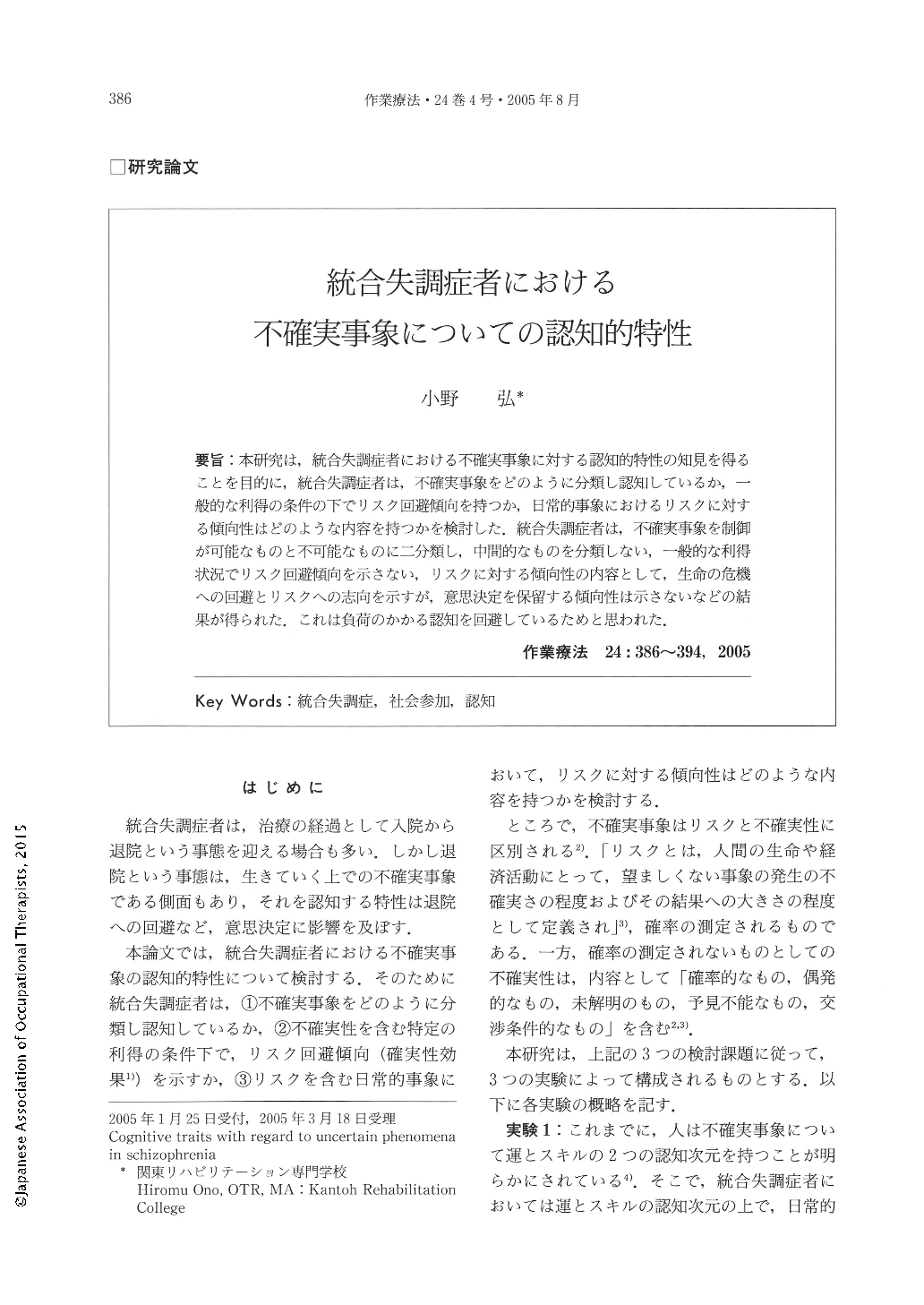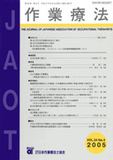Japanese
English
- 販売していません
- Abstract 文献概要
- 1ページ目 Look Inside
- 参考文献 Reference
- サイト内被引用 Cited by
要旨:本研究は,統合失調症者における不確実事象に対する認知的特性の知見を得ることを目的に,統合失調症者は,不確実事象をどのように分類し認知しているか,一般的な利得の条件の下でリスク回避傾向を持つか,日常的事象におけるリスクに対する傾向性はどのような内容を持つかを検討した.統合失調症者は,不確実事象を制御が可能なものと不可能なものに二分類し,中間的なものを分類しない,一般的な利得状況でリスク回避傾向を示さない,リスクに対する傾向性の内容として,生命の危機への回避とリスクへの志向を示すが,意思決定を保留する傾向性は示さないなどの結果が得られた.これは負荷のかかる認知を回避しているためと思われた.
The purpose of this study is to find out cognitive traits with regard to uncertain phenomena in Schizophrenia. First of all, to find out how Schizophrenia was classified into uncertain phenomena, a questionnaire was used, and for data analysis, cluster analysis was used. Secondly, to check risk aversion under profit conditions (the certainty effect) in Schizophrenia, a cross table was used. Thirdly, to find out about the components of risk aversion, a questionnaire was used and factor analysis was used. As a result, in Schizophrenia, first of all, uncertain phenomena were divided into two components, controllable and uncontrollable, and neutral components, found in college students, was not divided. Secondly, the certainty effect on risk taking, claimed by Description theory in healthy people, was not found. Thirdly, for components of risk aversion under daily phenomena, two factors was extracted, which included aversion for life crisis and traits for risk taking, and suspension factor, found in college students, was not extracted. We hypothesize that a neutral component, certainty effect and a suspension factor, require cognitive load accompanying complex information processing. And Schizophrenia decreases ability to manage cognitive load. I therefore considered that cognitive load, neural component ; certainty effect and suspension factor did not appear in Schizophrenia. This knowledge leads us to carry out direct expression and not ask for suspension in risk communication for participation in Schizophrenia.

Copyright © 2005, Japanese Association of Occupational Therapists. All rights reserved.


